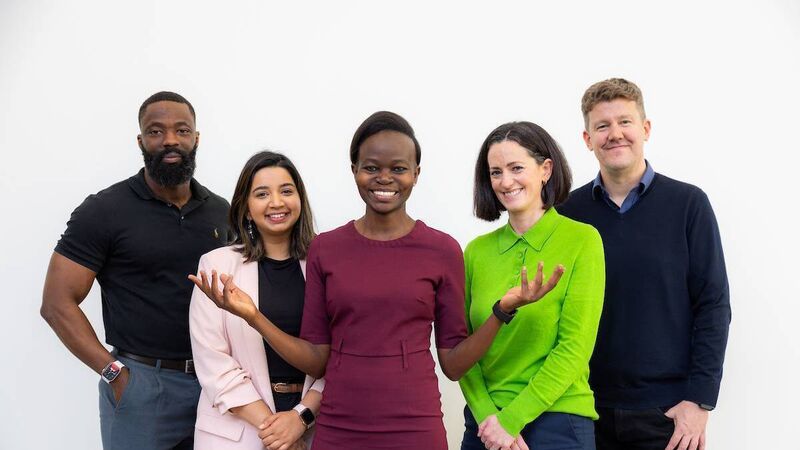Ethnic diversity helps you boost market share, says Bank of Ireland expert

Bank of Ireland Multi-Cultural Network committee members Yemi Ajomale, Taniya Srivastava and Christine Simiyu along with Kate Butler, Bank of Ireland inclusion and diversity lead, and Matt Elliott, chief people officer.
Employers who encourage greater ethnic diversity in the workplace are boosting their talent base and their customer appeal to the increasingly diverse Irish marketplace.
So says Deirdre Gavin, head of inclusion and diversity at Bank of Ireland. In 2023, 14% of the bank’s external hires belonged to an ethnic minority, a move aimed to ensure the bank as a whole is more fully reflective of the broader population.











